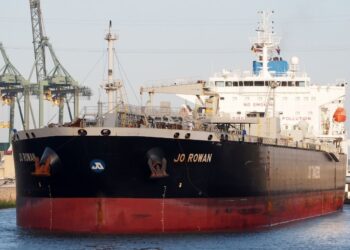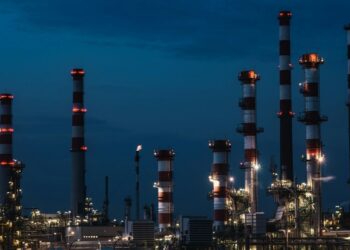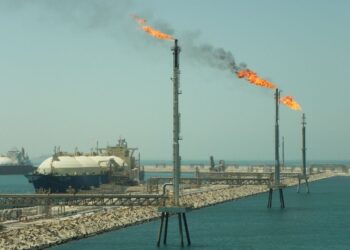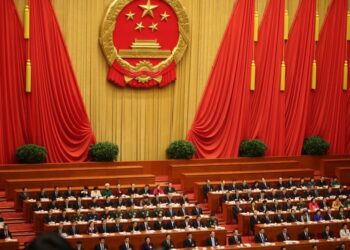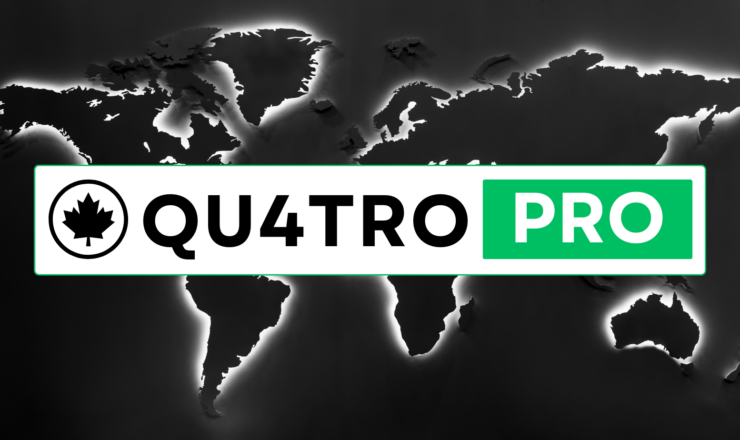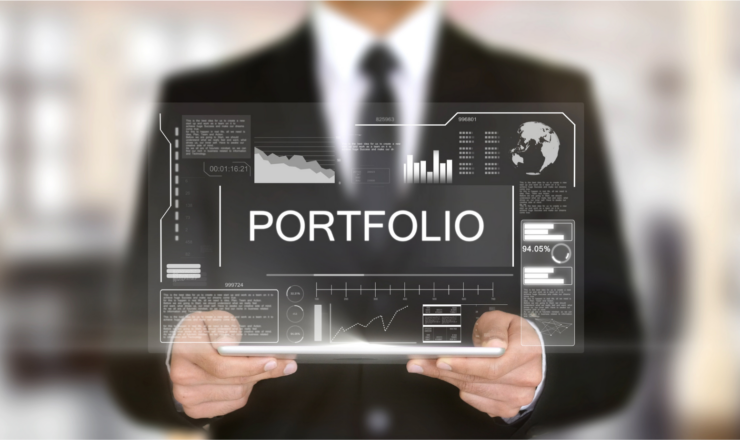Read Industry Insights
-
Beijing targets steel and refining again, tighten supply without triggering layoffs
China is once again trying to square a circle that has defined its industrial economy for a decade: it wants to curb the sort of excess production that crushes margins, fuels trade blowback and deepens deflation at home, but it also wants to avoid the unemployment and regional fiscal stress that come when large legacy sectors are forced to shrink quickly.
The National People’s Congress language putting steel and oil refining back in the crosshairs is therefore best read as a renewed political directive to “tighten the screws” without triggering a disorderly contraction, an approach that has historically produced incremental tightening at the center and uneven enforcement on the ground.
March 5, 2026 -
Hormuz closure turns Gulf war into a system-wide energy stress test
Markets are staring at an “energy-system stress test” rather than a conventional geopolitical premium, because several failure points are stacking up at once: the Strait of Hormuz is operating as if it’s closed in practice, a major Saudi refinery is offline, and Qatar’s LNG export complex has been hit.
In that setup, the range of outcomes is unusually wide because the key variable isn’t “how high can oil go in theory,” but “how long can physical flows remain impaired before the logistics and inventory buffers snap.
March 5, 2026 -
China halts gasoline, diesel exports as Gulf shock tightens supply fears
China’s reported instruction to major refiners to suspend exports of gasoline and diesel is a classic crisis-management move that signals Beijing is treating the Gulf disruption as a domestic stability risk, not just an external price shock.
Even though China is not the dominant supplier of refined products to the Middle East, the decision matters because it shows how quickly Asian governments are shifting from “optimize margins” to “secure internal supply” as the conflict constricts crude arrivals and scrambles shipping.
March 5, 2026 -
EU “Industrial Accelerator Act” to hardwire Made in Europe public spending
Europe’s new “Industrial Accelerator Act” is the Commission’s clearest attempt yet to turn public spending into an industrial-policy lever that systematically favors EU-based production, especially in clean-tech value chains where China’s scale and cost advantage has become politically intolerable.
The proposal would attach “Made in Europe” and, in many cases, low-carbon conditions to both public procurement and to public support schemes, explicitly using the purchasing power of European governments to create lead markets for domestically manufactured technologies.
March 5, 2026 -
Markets reprice Middle East conflict as stagflation risk, not a one-day shock
Investors are beginning to treat the Middle East war as a macro shock with duration risk rather than a headline flare-up that fades once the first round of strikes is absorbed.
The initial market response earlier in the week still had that familiar “risk-off, then stabilize” feel, but the newer move is psychological and quantitative: the longer tanker traffic remains impaired and the more energy infrastructure is threatened, the more markets start pricing a stagflationary mix of weaker growth and higher inflation that undermines the case for rate cuts.
March 5, 2026 -
Qatar’s Ras Laffan outage turns into month-scale shock for global LNG
Qatar’s LNG disruption is now moving from “temporary outage” into something closer to a month-long supply shock, which is why markets are treating it as a systemic event rather than another fleeting geopolitical headline.
Qatar will fully shut gas liquefaction at Ras Laffan on Wednesday, and even if a restart begins after roughly two weeks, it would take at least another two weeks to ramp back to normal production and export levels, implying a minimum of about a month before full volumes return. QatarEnergy, which already declared force majeure on exports, has not commented publicly.
March 5, 2026 -
Beijing doubles down on AI and “new productive forces,” not consumption
China’s 15th Five-Year Plan is being presented as an explicit national security document as much as an economic one: Beijing is doubling down on technology, AI and industrial upgrading as the core engine of growth, while offering only modest, non-quantified reassurance on household consumption.
The message is that China intends to win a long rivalry with the United States not by pivoting toward a Western-style consumption model, but by building what Xi calls “new productive forces”, a state-guided innovation-and-manufacturing machine designed to offset demographics, resist export controls, and preserve strategic leverage in chokepoint supply chains.
March 5, 2026 -
South Korea warns that Gulf turmoil could choke critical chip materials
The Iran conflict’s extension into semiconductor manufacturing material disruptions, particularly the threat to helium supplies from Qatar that possess no viable alternatives for critical heat management functions during chip fabrication, represents the nightmare scenario where geopolitical chaos in one region paralyzes the technological foundations of global digital infrastructure.
South Korea’s dominance in memory chip production supplying two-thirds of worldwide demand means that even modest disruptions to Korean manufacturing cascade catastrophically through supply chains already strained by insatiable artificial intelligence data center requirements, creating the potential for comprehensive technology sector paralysis extending from smartphones through autonomous vehicles to the cloud computing infrastructure underpinning modern economic activity.
March 5, 2026
Couldn't see what your are looking for?
Type any keywords to search our insights database.
Also use regional and sectoral filters in the top menu bar.
Explore Our Services
Get Top Insights Today




